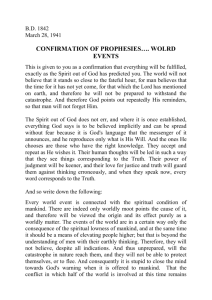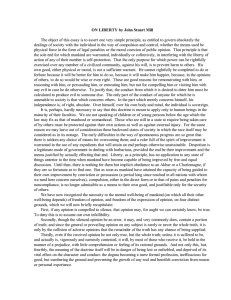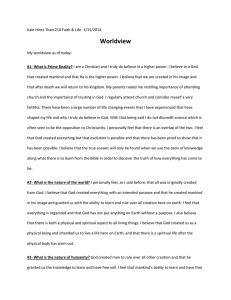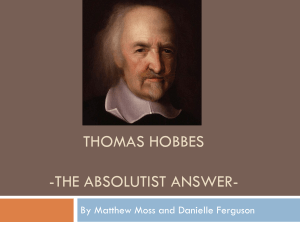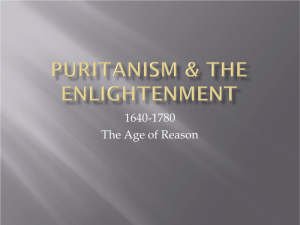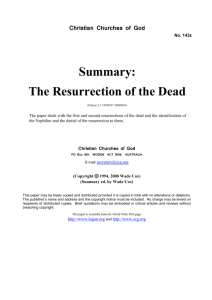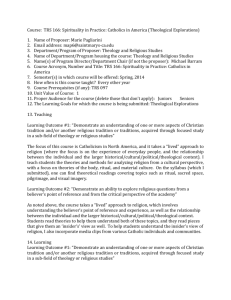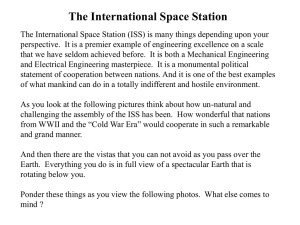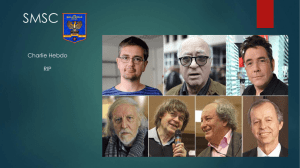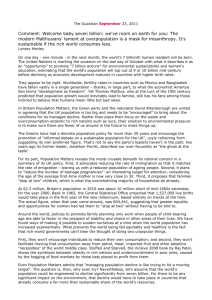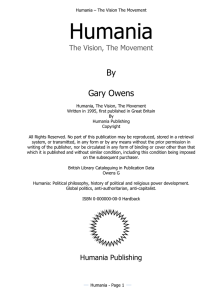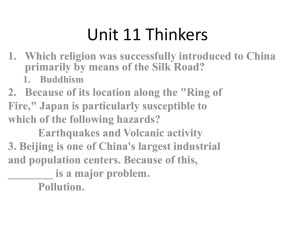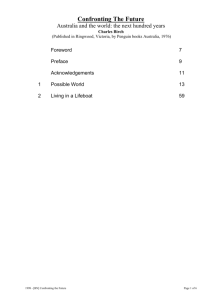5. The Idea of Progress by Joseph A. Mazzeo (1965) No single idea
advertisement
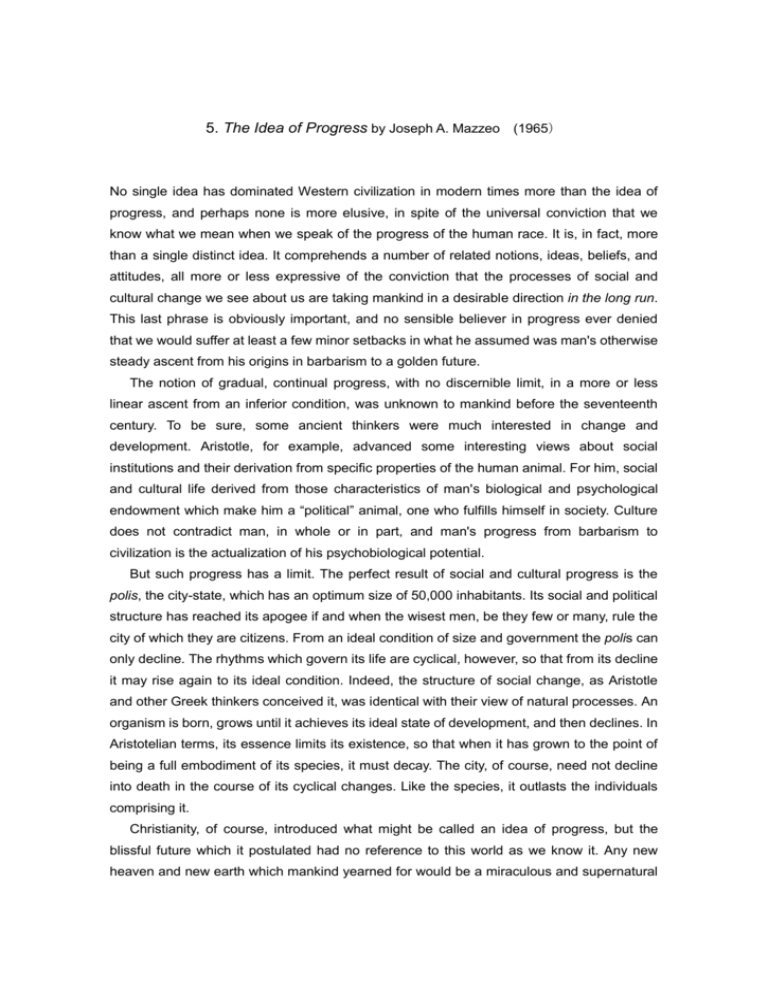
5. The Idea of Progress by Joseph A. Mazzeo (1965) No single idea has dominated Western civilization in modern times more than the idea of progress, and perhaps none is more elusive, in spite of the universal conviction that we know what we mean when we speak of the progress of the human race. It is, in fact, more than a single distinct idea. It comprehends a number of related notions, ideas, beliefs, and attitudes, all more or less expressive of the conviction that the processes of social and cultural change we see about us are taking mankind in a desirable direction in the long run. This last phrase is obviously important, and no sensible believer in progress ever denied that we would suffer at least a few minor setbacks in what he assumed was man's otherwise steady ascent from his origins in barbarism to a golden future. The notion of gradual, continual progress, with no discernible limit, in a more or less linear ascent from an inferior condition, was unknown to mankind before the seventeenth century. To be sure, some ancient thinkers were much interested in change and development. Aristotle, for example, advanced some interesting views about social institutions and their derivation from specific properties of the human animal. For him, social and cultural life derived from those characteristics of man's biological and psychological endowment which make him a “political” animal, one who fulfills himself in society. Culture does not contradict man, in whole or in part, and man's progress from barbarism to civilization is the actualization of his psychobiological potential. But such progress has a limit. The perfect result of social and cultural progress is the polis, the city-state, which has an optimum size of 50,000 inhabitants. Its social and political structure has reached its apogee if and when the wisest men, be they few or many, rule the city of which they are citizens. From an ideal condition of size and government the polis can only decline. The rhythms which govern its life are cyclical, however, so that from its decline it may rise again to its ideal condition. Indeed, the structure of social change, as Aristotle and other Greek thinkers conceived it, was identical with their view of natural processes. An organism is born, grows until it achieves its ideal state of development, and then declines. In Aristotelian terms, its essence limits its existence, so that when it has grown to the point of being a full embodiment of its species, it must decay. The city, of course, need not decline into death in the course of its cyclical changes. Like the species, it outlasts the individuals comprising it. Christianity, of course, introduced what might be called an idea of progress, but the blissful future which it postulated had no reference to this world as we know it. Any new heaven and new earth which mankind yearned for would be a miraculous and supernatural act. It would come at the end of time with the general resurrection, and the temporal process preceding this eschatological event was by no means a gradual approximation of it. Indeed, human affairs would get much worse before God, acting beyond all human comprehension, would make them suddenly better. Meanwhile, life was a journey, a pilgrimage, leading from the miseries of this world to the bliss of the world to come for those fortunate enough to be numbered among the elect, and to infinitely greater eternal misery for those who were damned. The general resurrection and the Last Judgment would alter the personal fate of no man. It would simply bring history to an end and consolidate, so to speak, the many inscrutable judgments of God. For classic Christian theology, progress could only mean progress toward salvation, toward a goal outside of space and time, and classic theology, if we take St. Augustine as a model, was rather pessimistic about the number of mankind which would be saved. Such progress would be available to the lucky few God had decided to rescue from the general doom. Of course most Christians, even Christian theologians, went on living in the world and, like men everywhere, tried to gain what material advantages and improvements they could. Still, for the faithful, this progress was finally irrelevant. The true believer who thought himself elect was constrained to reflect that his journey from sin to salvation and from sorrow to joy, the way of true progress, led through the gate of death.

